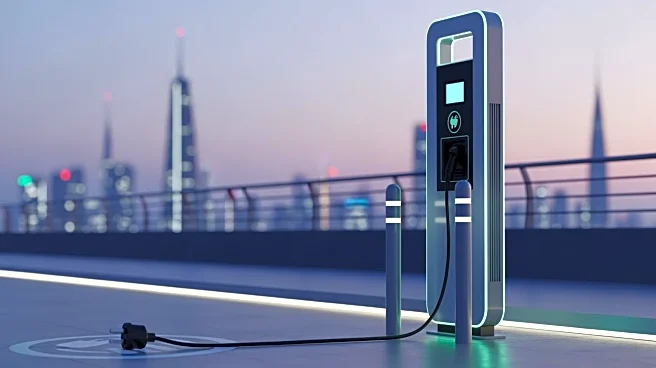What's Happening?
Ford has reported a significant decline in battery electric vehicle (BEV) sales following the cessation of the US$7,500 federal tax credit. During the Ford Pro Accelerate conference on September 30, 2025,
Chief Executive Jim Farley predicted a drop in BEV demand without the tax credit. This prediction was confirmed by Ford's October sales figures, which showed a 25% year-on-year decrease in BEV sales. The tax credit had been a crucial incentive for consumers purchasing electric vehicles, and its removal appears to have impacted sales negatively.
Why It's Important?
The decline in BEV sales following the end of the federal tax credit highlights the importance of government incentives in promoting electric vehicle adoption. The tax credit had been instrumental in making electric vehicles more affordable for consumers, thereby boosting sales and supporting the transition to cleaner transportation options. The reduction in sales could slow down the progress towards reducing carbon emissions and achieving environmental goals. Automakers and policymakers may need to explore alternative incentives or strategies to sustain the growth of the electric vehicle market.
What's Next?
Automakers, including Ford, may need to reassess their strategies to maintain BEV sales momentum in the absence of federal tax credits. This could involve offering additional incentives, such as discounts or financing options, to attract consumers. Policymakers might also consider introducing new measures to support the electric vehicle industry, such as state-level incentives or infrastructure investments. The industry will be closely monitoring consumer behavior and sales trends to adapt to the changing market dynamics.









